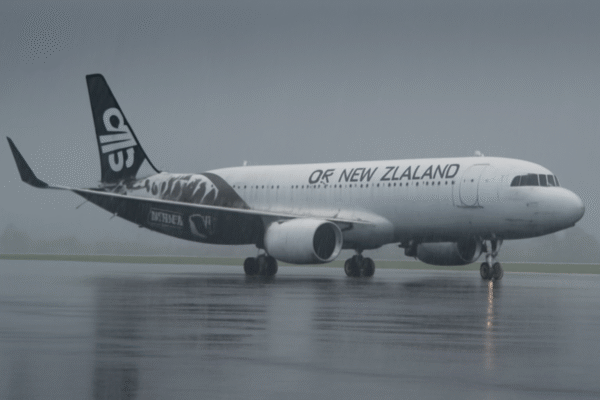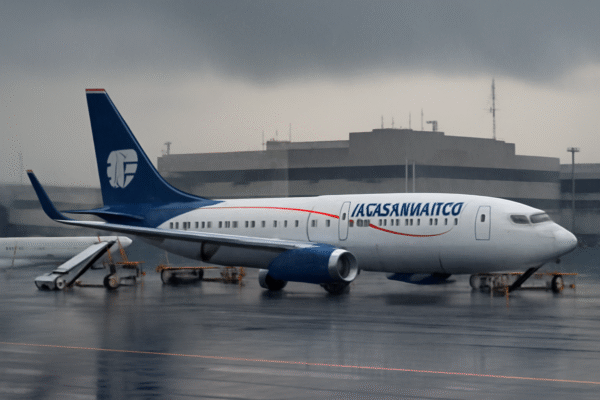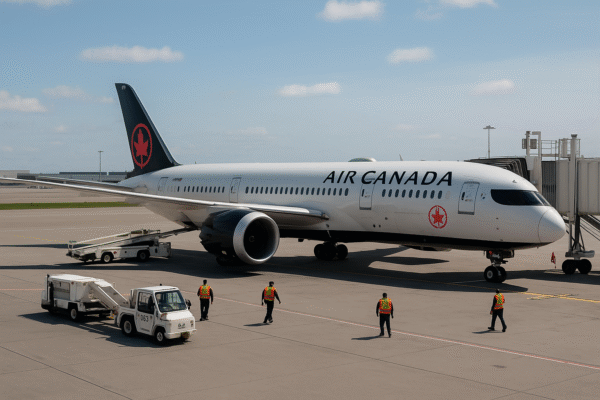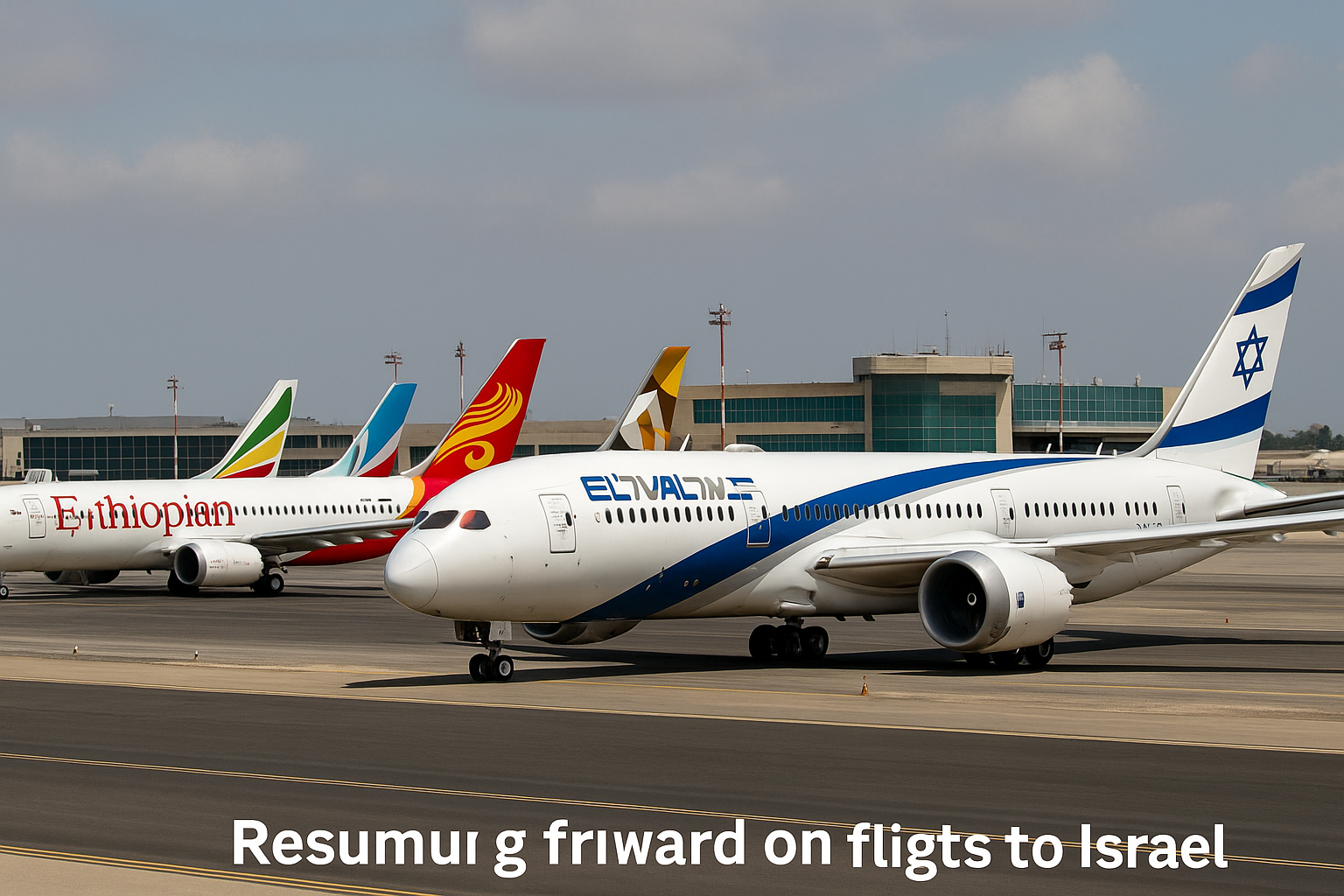Israel’s skies are once again welcoming international traffic, as major carriers including El Al, Flydubai, Etihad Airways, Ethiopian Airlines, Hainan Airlines, Georgian Airways, and others resume flight operations following the reopening of Israeli airspace. This development marks a pivotal step toward stabilizing the region’s aviation industry after recent disruptions caused by escalating regional tensions.
The Israeli government’s introduction of robust war-risk insurance guarantees—valued at nearly $8 billion—has significantly bolstered airline confidence, paving the way for a powerful rebound in tourism and international air connectivity.
El Al Leads the Return as Israel’s National Carrier
Israel’s flag carrier, El Al, was the first to resume full operations once Israeli Civil Aviation Authority lifted its airspace restrictions. With safety measures and operational protocols now realigned, El Al is gradually scaling its network back to pre-crisis capacity. The airline remains optimistic about passenger demand rebounding, especially for business, religious, and diaspora travel.
El Al is also extending flexible rebooking options and offering real-time status updates to support travelers affected by earlier cancellations. While it may take time for traffic to normalize, El Al’s decisive action reinforces its leadership role in Israel’s aviation recovery.
UAE-Based Carriers Reactivate Routes to Tel Aviv
Flydubai and Etihad Airways have both reinstated services between the UAE and Israel. The Dubai-based low-cost airline Flydubai, one of the first Gulf carriers to establish air links with Israel after the Abraham Accords, confirmed the reactivation of its Tel Aviv schedule within days of the airspace reopening.
Meanwhile, Etihad Airways, headquartered in Abu Dhabi, has initiated preparations to restore its flights to Tel Aviv. Its return demonstrates not only the airline’s commitment to regional air service but also the growing tourism and business ties between Israel and the UAE.
African and Asian Airlines Join the Comeback
Ethiopian Airlines, one of Africa’s largest carriers, has announced its return to Israel, reconnecting Addis Ababa with Tel Aviv. This route plays a vital role for business travelers and the sizable Ethiopian Jewish community in Israel.
Chinese carrier Hainan Airlines has also confirmed the resumption of its services, with flights from Shenzhen restarting June 29 and from Beijing resuming June 30. These routes are vital for both tourism and trade between China and Israel.
Georgian Airways, too, has resumed its regular service between Tbilisi and Tel Aviv, reinforcing connectivity with the Caucasus region.
Oman Air and Regional Carriers Resume Operations
Oman Air resumed its Israel-bound flights after the reopening of Iraq and Syria’s airspace, which were previously closed due to heightened tensions. This decision, coupled with the gradual return of peace across the region, demonstrates a growing trust in regional air safety and risk mitigation frameworks.
These developments point to broader regional stabilization and renewed confidence among airlines to re-enter the Israeli market.
Israeli Government’s War-Risk Insurance Boosts Airline Confidence
A key enabler of this aviation revival is the Israeli government’s war-risk insurance guarantee program. The government has merged two previously existing frameworks from March 2022 (related to Russian airspace) and October 2023 (linked to Gaza conflict disruptions) into a single comprehensive system that supports both Israeli and foreign carriers.
This $8 billion initiative ensures that airlines can operate flights to and from Israel with reduced liability exposure, thus restoring a sense of security and financial feasibility for carriers previously reluctant to resume operations.
Air Travel Recovery: Impacts on Tourism and the Economy
Tourism is a cornerstone of Israel’s economy, and the disruption caused by the recent conflict significantly affected revenue streams across hospitality, ground transport, and retail sectors. The swift and coordinated return of major global airlines is expected to stimulate a resurgence in inbound tourism, especially from the U.S., Europe, Asia, and the Gulf.
Tourism officials have already reported a sharp uptick in forward bookings and hotel reservations, particularly in Tel Aviv, Jerusalem, and Eilat, signaling renewed interest in leisure, pilgrimage, and cultural travel.
Looking Ahead: Israel’s Path Toward Full Air Connectivity
As more airlines confirm their return to Israeli skies, the aviation sector is preparing for a sustained recovery. Coordinated marketing campaigns by the Ministry of Tourism and support from airport authorities at Ben Gurion International Airport aim to ease the transition for both airlines and travelers.
Israel’s aviation infrastructure has proven resilient, with upgrades in air traffic control, security coordination, and international diplomacy ensuring a smoother re-entry for partner airlines.
Conclusion: A New Chapter in Israeli Aviation
El Al, Flydubai, Etihad, Ethiopian Airlines, Hainan Airlines, and Georgian Airways are now at the forefront of re-establishing Israel’s vital global air links. Their collective return marks a hopeful new chapter for Israel’s aviation and tourism sectors, underpinned by government support and growing regional stability.
For travelers planning a return to Israel—whether for business, religious tourism, or family reunions—this reopening of the skies provides renewed opportunity, accessibility, and assurance of safety.
For more travel news like this, keep reading Global Travel Wire


















